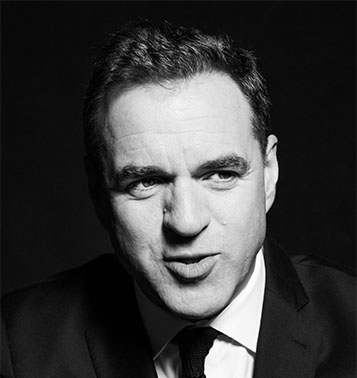Historian Niall Ferguson talks to the John Adams Institute about his new book 'Doom: The Politics of Catastrophe', COVID-19 and how we might better prepare to tackle future threats.

Having finished the first volume of his biography of Henry Kissinger, Scottish-American Niall Ferguson decided to take a break and do something 'fun'. This led him to write Doom: The Politics of Catastrophe (2021), curiously coinciding with the COVID-19 pandemic.
Although COVID-19 obviously features, his aim was to propose a general theory of disaster, Ferguson told an online presentation, hosted by the John Adams Institute, on July 5. He emphasized, "Doom is not a book about COVID-19 and it is not just a book about pandemics. It's a general history of disasters of all kinds, including man-made disasters."
Nevertheless, COVID-19 and responses to the pandemic around the globe dominated the discussion during the John Adams event.
Ferguson's central argument is that human vulnerability has increased, and we've become more fragile in some ways, as we have grown more sophisticated, more numerous and more inter-connected. Human longevity and obesity are other contributing factor. Ferguson, "We are an elderly species compared with the humanity of 100 years ago. That means there are a lot of relatively vulnerable people."
"Doom is not a book about COVID-19 and it is not just a book about pandemics. It's a general history of disasters of all kinds, including man-made disasters."
Niall Ferguson
He also argues that the 21st century bureaucratic state "seems less nimble, seems slower to respond in an emergency than perhaps was true 50, 60 or 70 years ago". Interestingly, Ferguson points to mid-level bureaucrats and the Center for Disease Control in the US rather than leaders of countries when evaluating responses.
The historian makes the case that the death toll in the pandemic could be compared to the Korean War, while the economic impact of lockdowns and business closures was comparable to that of a world war. Stressing he not downplaying climate change, Ferguson expressed concern that the rising focus on that issue could mean we miss other looming disasters. He said, "There are other things than can happen faster than climate change and we really need to pay attention to those too."
Watch the discussion
Join the debate
Niall Ferguson is the latest in a long line of thought-provoking speakers presented by John Adams Institute. Supported by Aegon as a sponsor, the Amsterdam-based institute provides an independent podium for American culture in the Netherlands. For three decades now, it has brought the best and the brightest of American thinking from the fields of literature, politics, history, technology and the arts.
The pandemic has led to moving the events online and everyone can listen to and ask questions during the discussions. Go to the John Adams Institute website to see the agenda of upcoming speakers.
